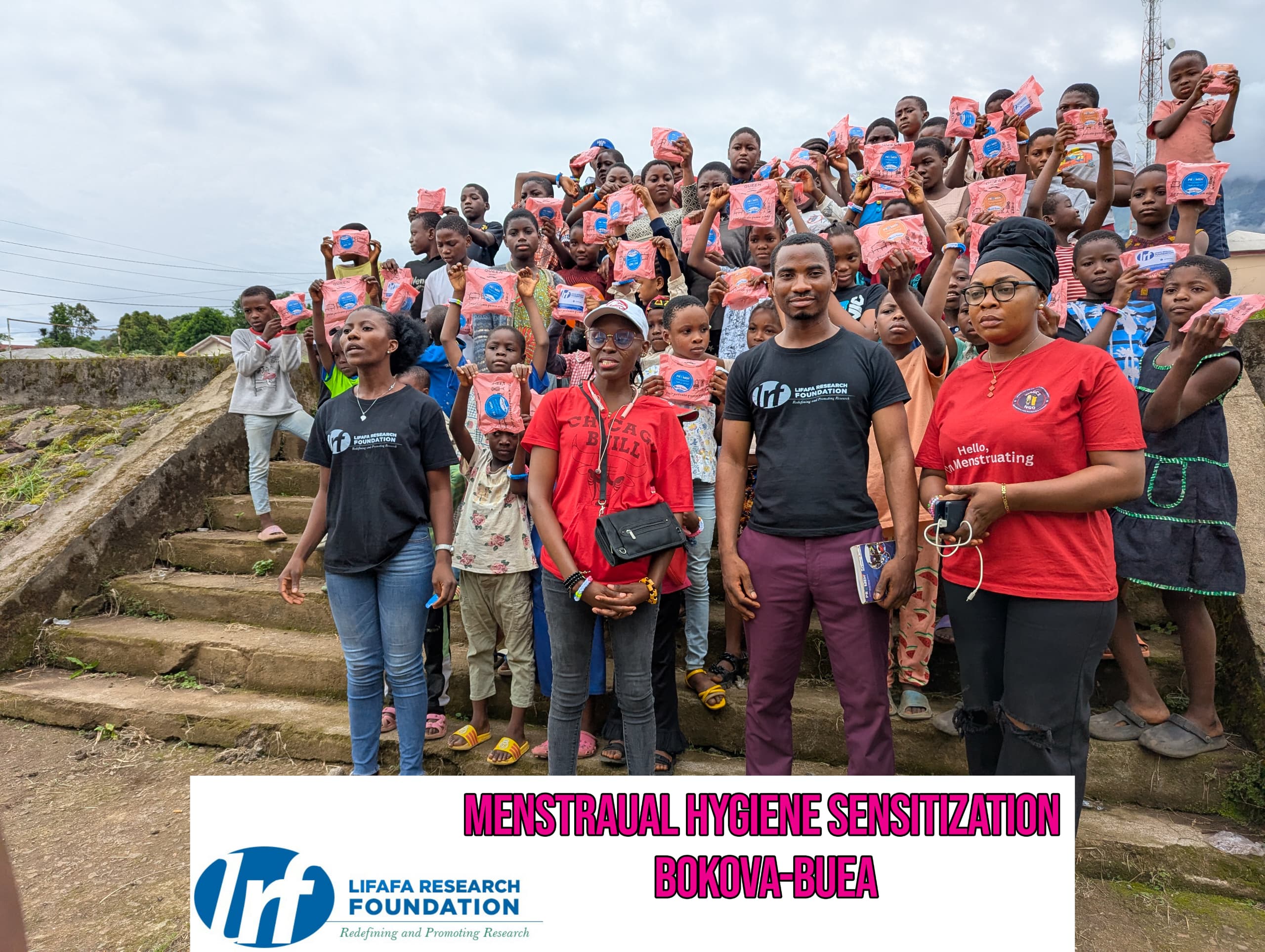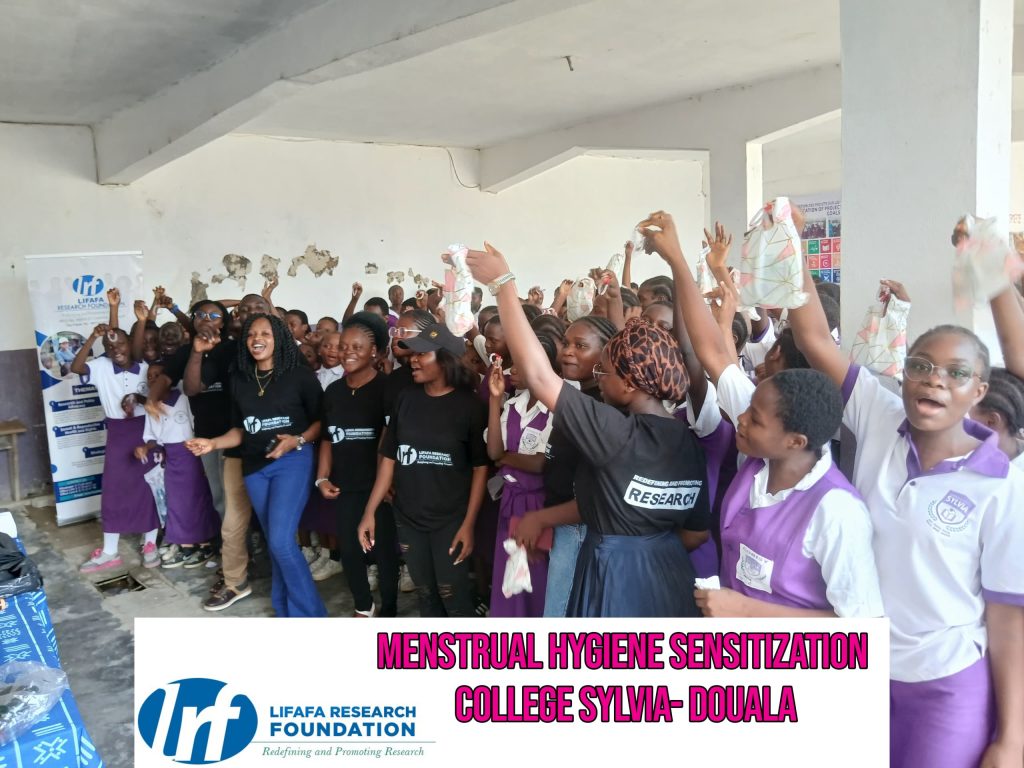-
- INTRODUCTION
-
In a world where menstruation is still shrouded in silence and stigma, initiatives that bring knowledge, empowerment, and dignity to young girls are not just important they are essential. On a bright and hopeful morning in Bokova village, the Lifafa Research Foundation in partnership with Women and the Girl Child Empowerment launched an impactful community outreach campaign aimed at educating young girls on menstruation, ovulation, and menstrual hygiene management.
The campaign, designed to be both educational and interactive, drew dozens of enthusiastic young girls, eager to learn about a subject that affects their lives profoundly, yet is often misunderstood or ignored in many rural communities. What unfolded over the next few hours was nothing short of transformational an experience filled with songs, games, teaching, laughter, debate, and enlightenment.
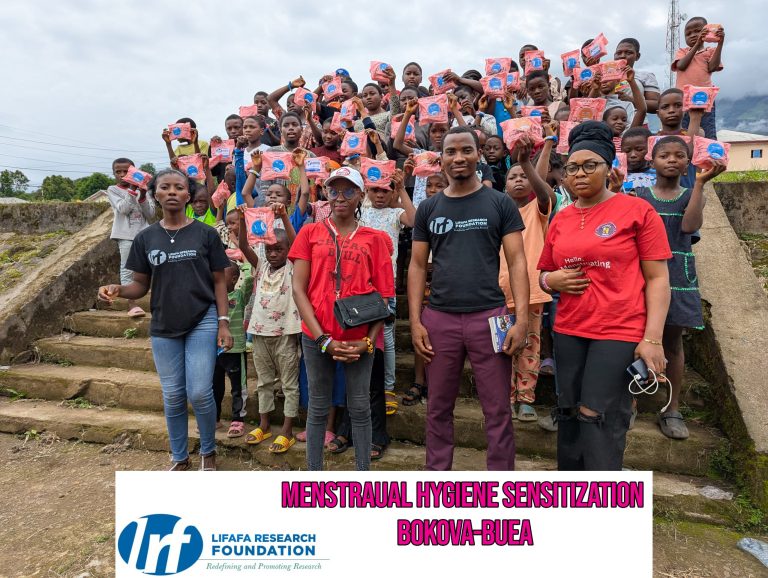
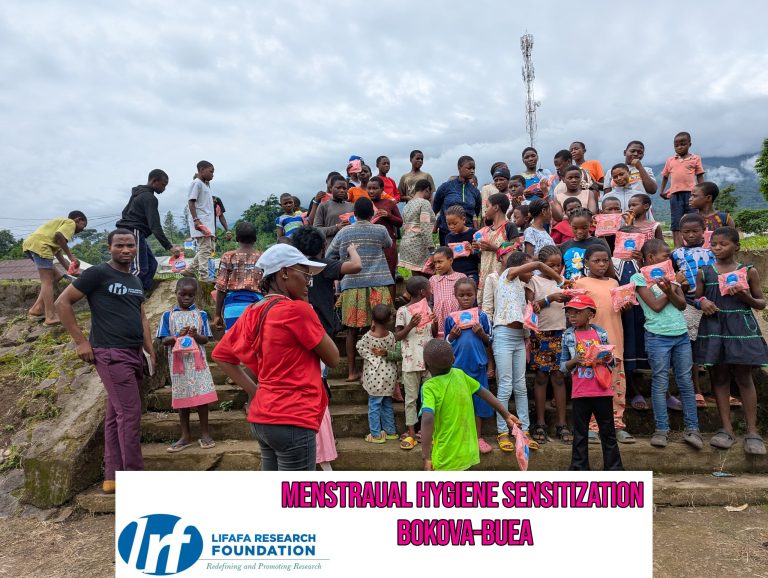
Kicking Off the Day: Setting the Stage for Learning
The Lifafa Research Foundation staff arrived at the campaign venue full of energy and anticipation. The event officially began with a heartwarming opening prayer involving the early arrivals. As more participants trickled in, the room gradually filled with young faces glowing with curiosity.
To break the ice and create a relaxed atmosphere, the team engaged the participants through local songs, thought-provoking questions, and energizing games like the “sit and stand” game. These activities not only built excitement but also established trust, which was vital for the sensitive nature of the topic at hand.
Once everyone was fully engaged, a general round of introductions followed. Each participant stood up to share their name, address, gender, and age. This exercise fostered a sense of community and unity among the girls, preparing them for the deeper conversations ahead.
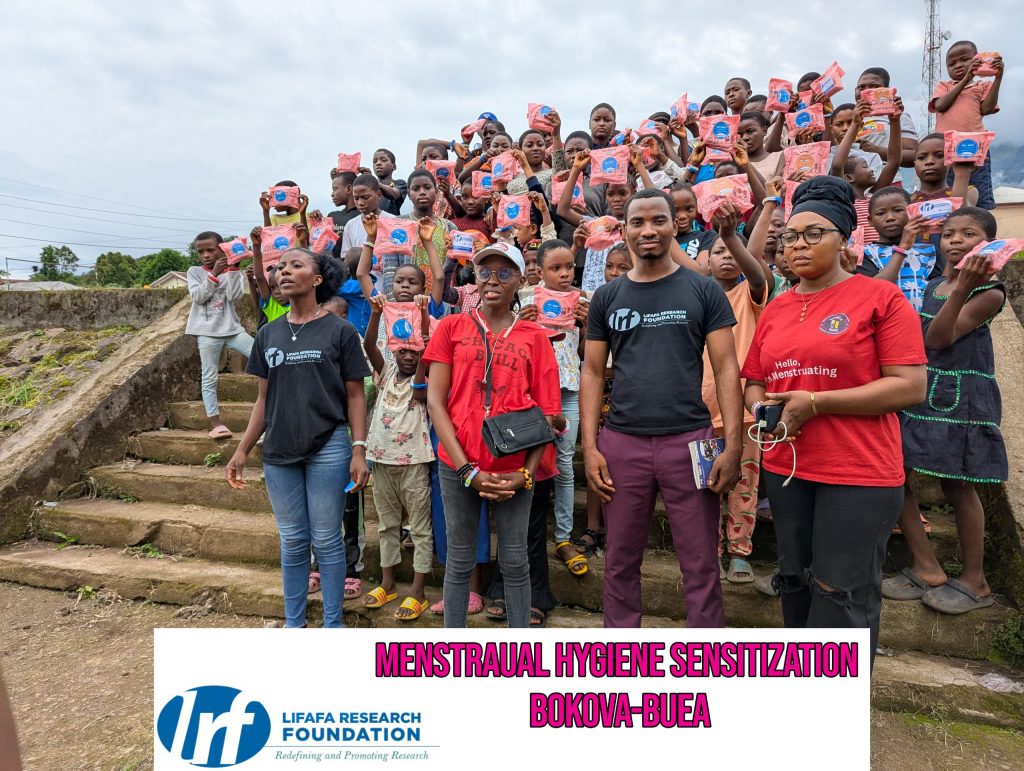
Getting to Know Lifafa and the Power of Women’s Empowerment
Before diving into the main content, participants were introduced to the Lifafa Research Foundation, its mission, and its impact. An overview of the Women and the Girl Child Empowerment initiative was also provided, shedding light on the broader goals of advocating for female dignity, education, and inclusion in health conversations. With the foundational understanding laid, it was time to begin the teaching a two-part educational session that would leave the participants not only informed but inspired.
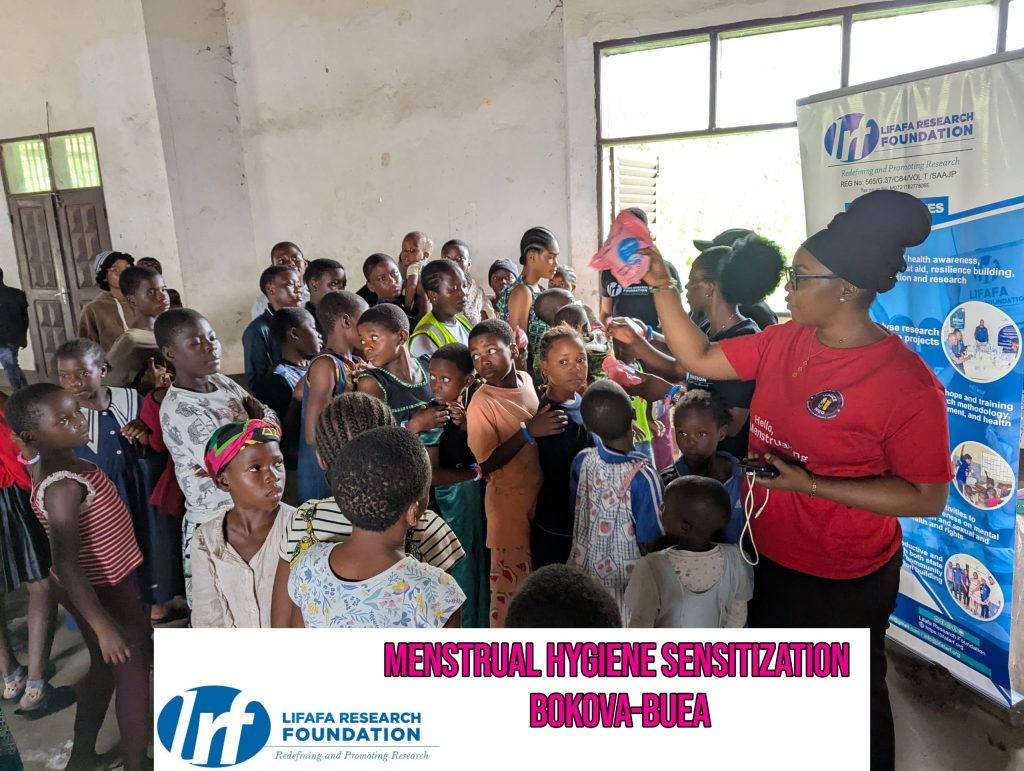
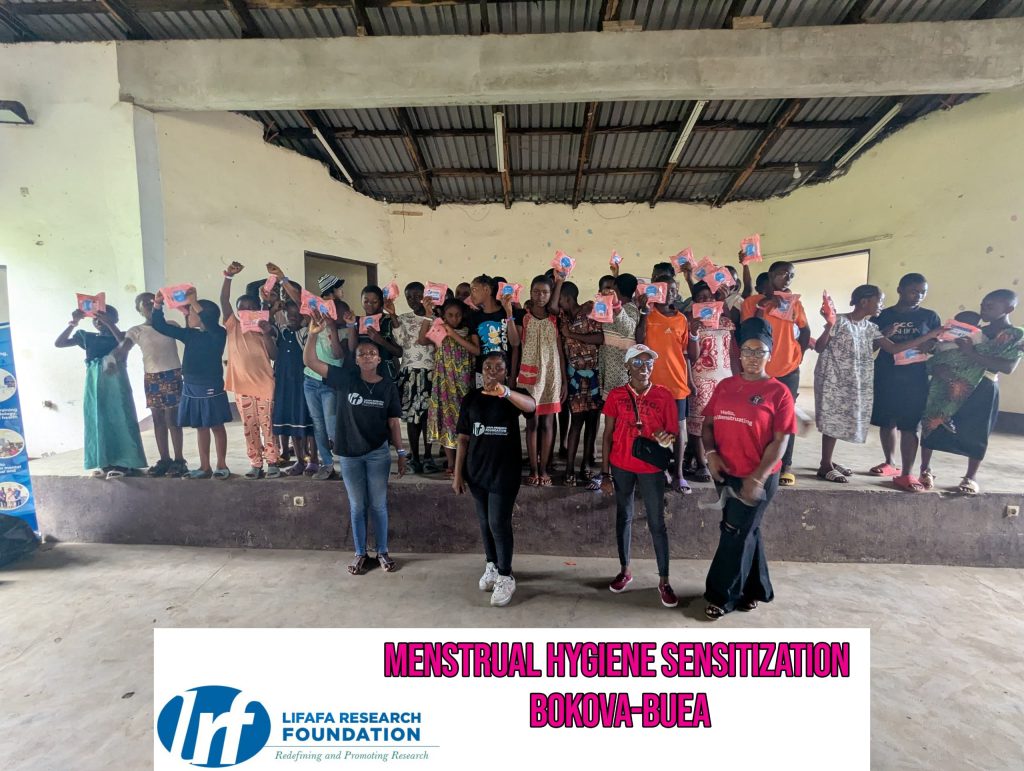
Part A: Lifafa Research Foundation; Teaching Menstrual Health with Dignity
- Sanitary Pads: Learning the Basics
The teaching session began with a captivating personal story that instantly drew the attention of the young girls. This storytelling approach made the topic of menstruation feel relatable and less intimidating.
Participants learned in detail how to:
Remove a sanitary pad from its package
Properly wear it
Safely remove it
Dispose of it hygienically
After this, the floor was opened for questions. The girls, energized and inquisitive, asked insightful questions that revealed their deep engagement. Their active participation affirmed how necessary and overdue such education was in their lives. To re-energize the group, everyone engaged in simple stretches and movements preparing both mind and body for the next lesson.
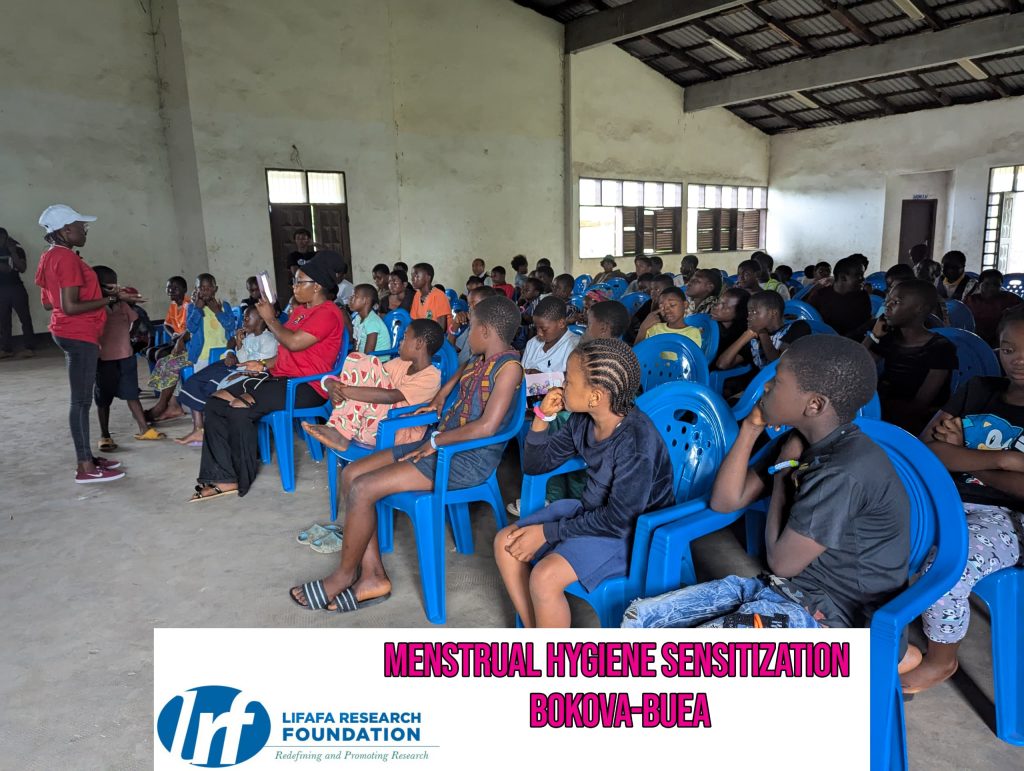
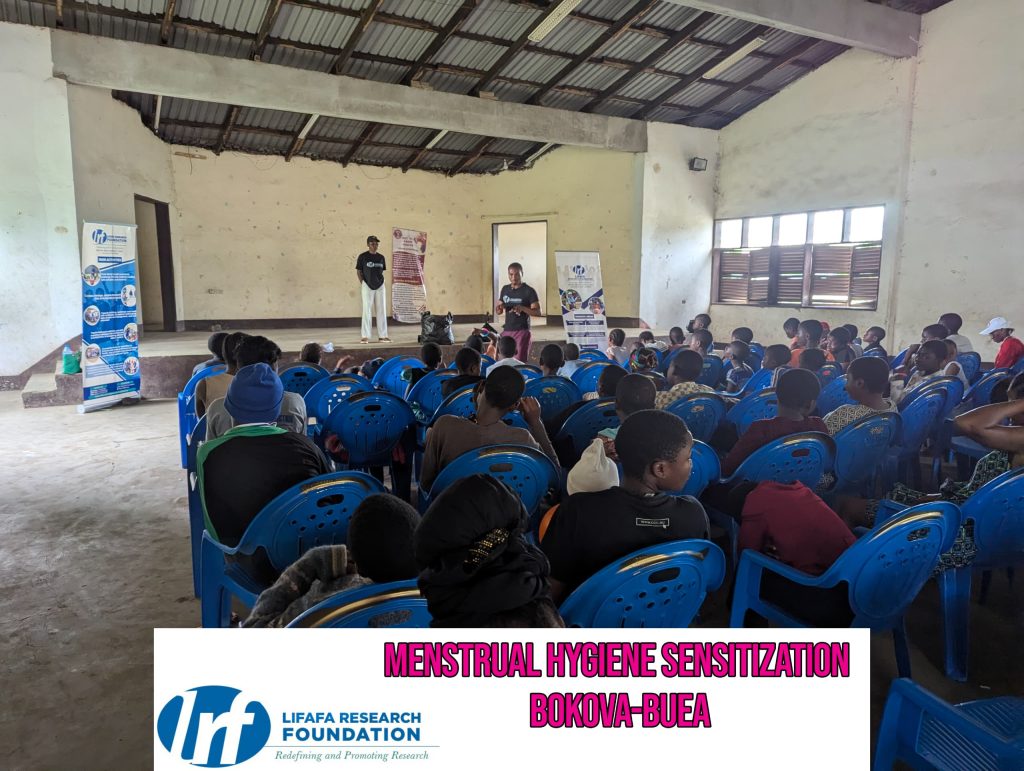
- Understanding the Changes During Menstruation
The session continued with a clear explanation of what happens during menstruation. The young girls were taught about:
Cramps typically felt as pain in the lower abdomen
Mood Swings unexplained changes in mood like sudden happiness or sadness
These relatable experiences helped normalize menstruation, helping the participants realize that what they feel during their periods is completely natural.

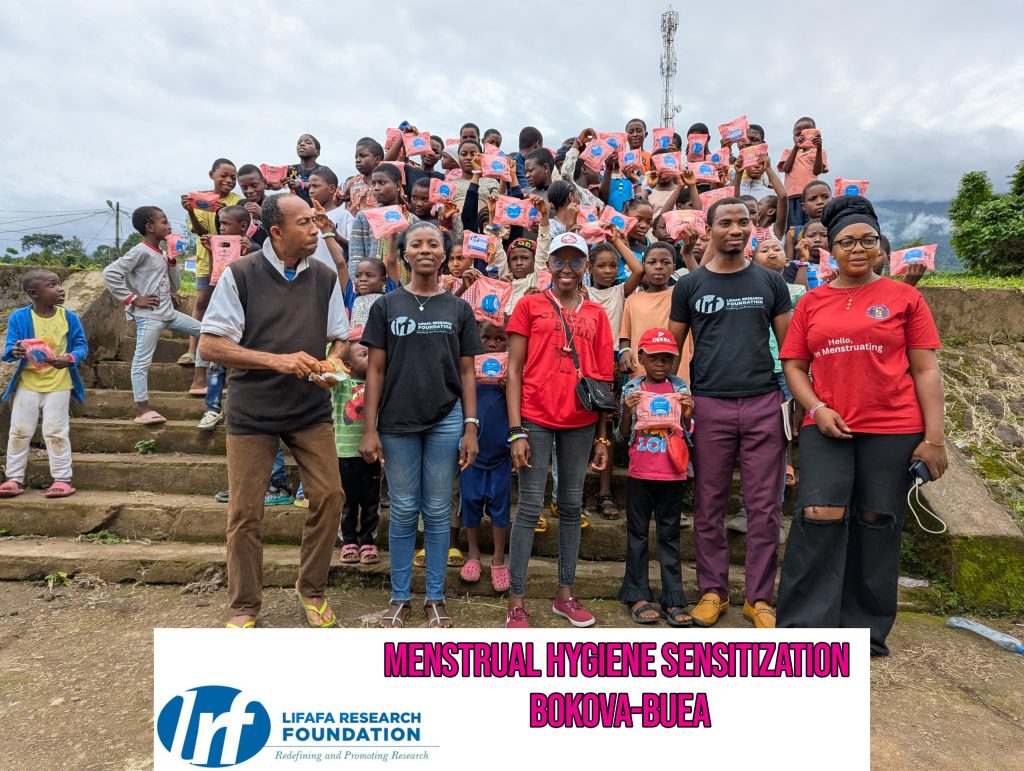
- Mastering the Menstrual Cycle
Using colorful charts and bracelets, the team introduced the concept of the menstrual cycle in a hands-on, practical manner. The girls learned that the cycle typically spans 28 days, though it can vary between 27 and 35 days depending on the individual.
They were also taught:
That counting the menstrual cycle starts from the first day of bleeding
The concept of ovulation (the most fertile period), occurring between days 13 and 14
How to identify safe and fertile periods within their cycle
To reinforce this learning, each girl received a menstrual bracelet a simple but powerful tool to track their cycles with ease and confidence.
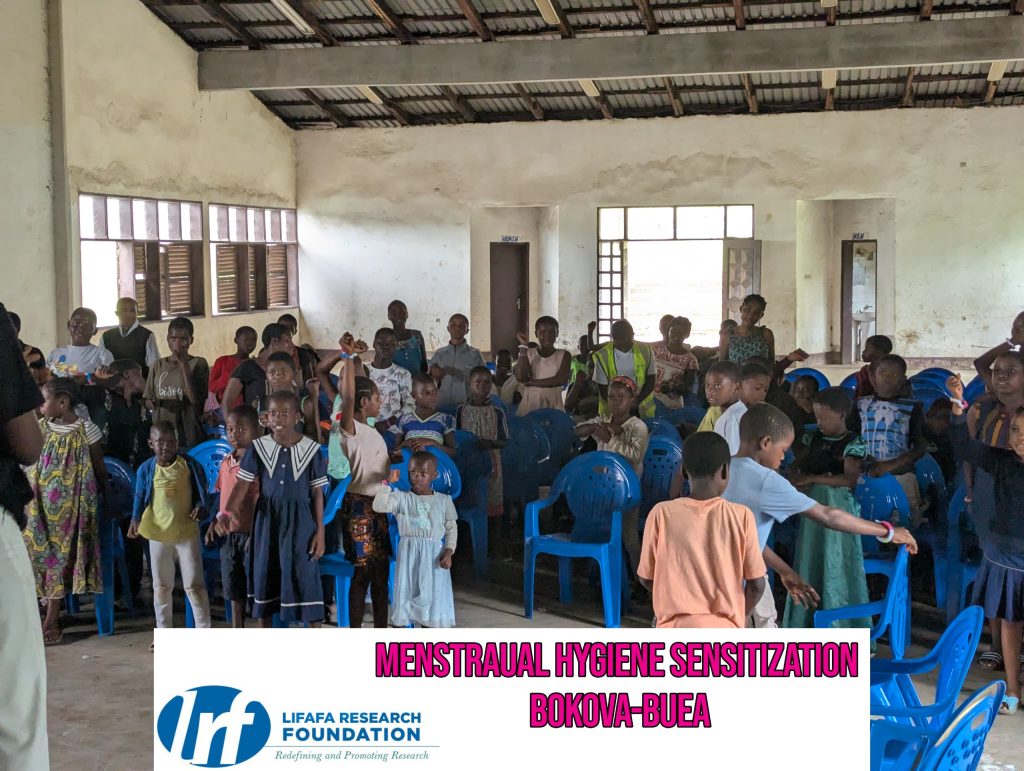
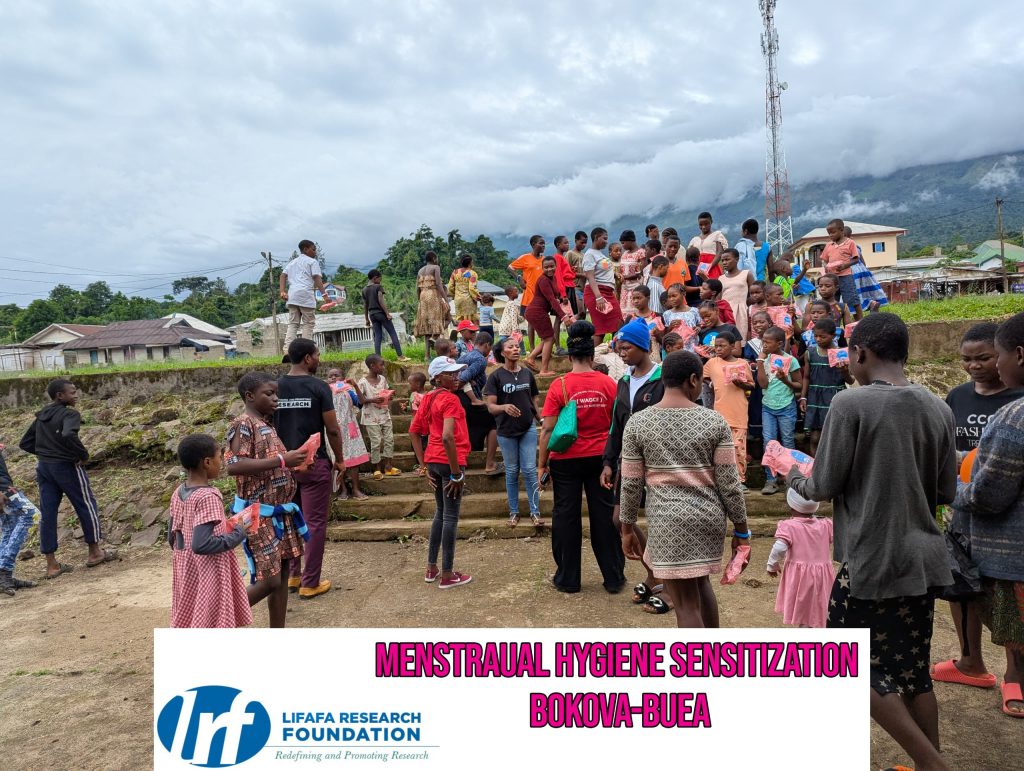
- Hygiene is Key: Menstrual Hygiene Management
Proper hygiene during menstruation was emphasized through practical demonstrations. The girls were taught:
To change pads every 3–4 hours
To bathe after each pad change
To avoid using chemicals like detergents or harsh soaps for internal cleaning
To wipe from front to back to prevent infections
This session was vital in combating the dangerous myths and practices that often contribute to infections and discomfort during menstruation.

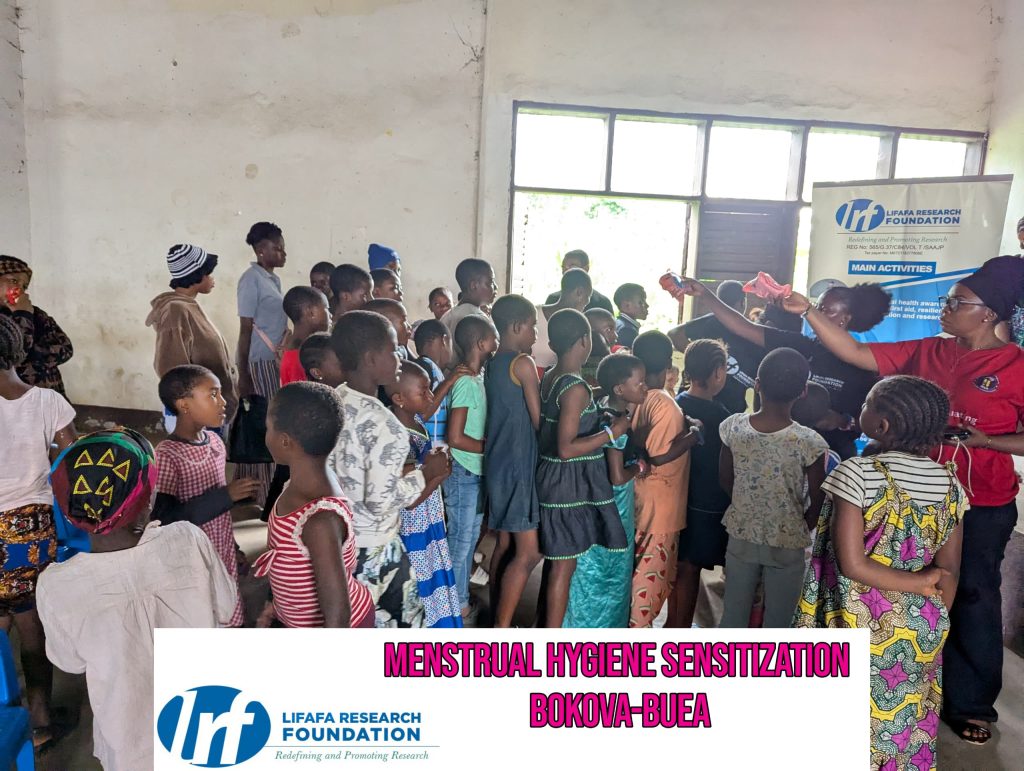
- Understanding Abnormalities in Menstruation and Ovulation
After another interactive relaxation session filled with songs and stretches, participants explored the abnormalities of menstruation and ovulation. These included:
Amenorrhea – absence of menstruation
Oligomenorrhea – infrequent menstruation
Menorrhagia – heavy menstrual bleeding
Anovulation – absence of ovulation
Polycystic Ovary Syndrome (PCOS) – a hormonal disorder
This session helped demystify these conditions, allowing the participants to understand when to seek help and how to recognize symptoms early.
A game followed to solidify understanding and build team spirit. Participants were divided into two groups (A and B), each given four balloons. The game, full of laughter and excitement, was won by the group that burst all the opponent’s balloons. This playful activity helped balance the seriousness of the topic with joyful learning.
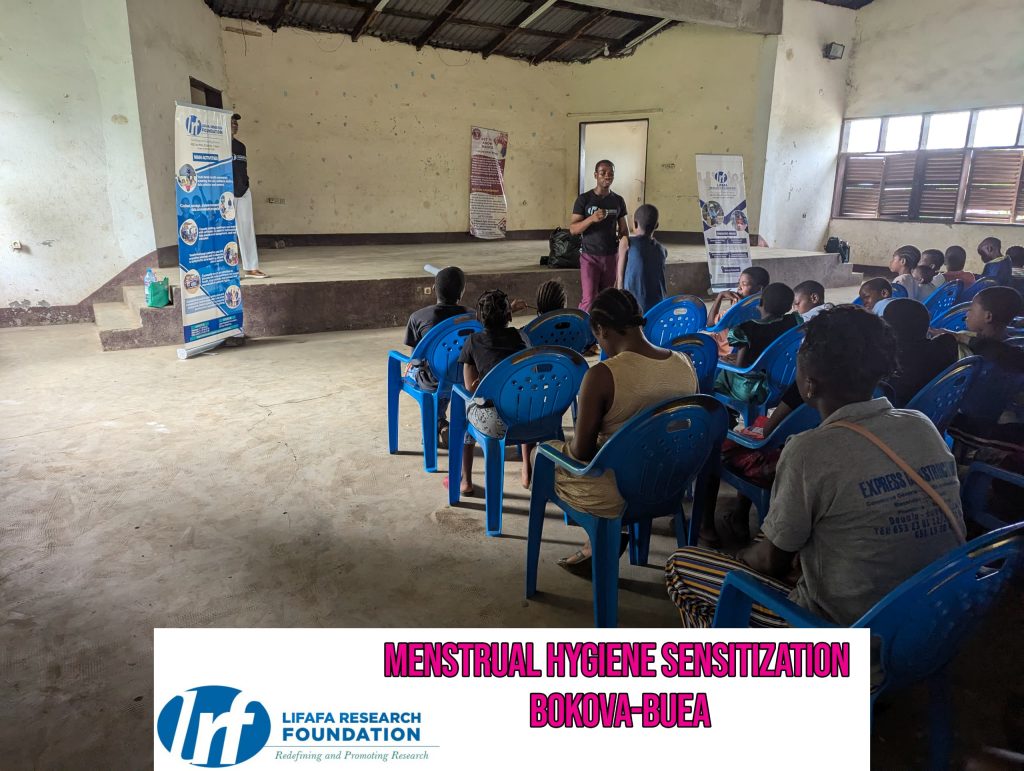
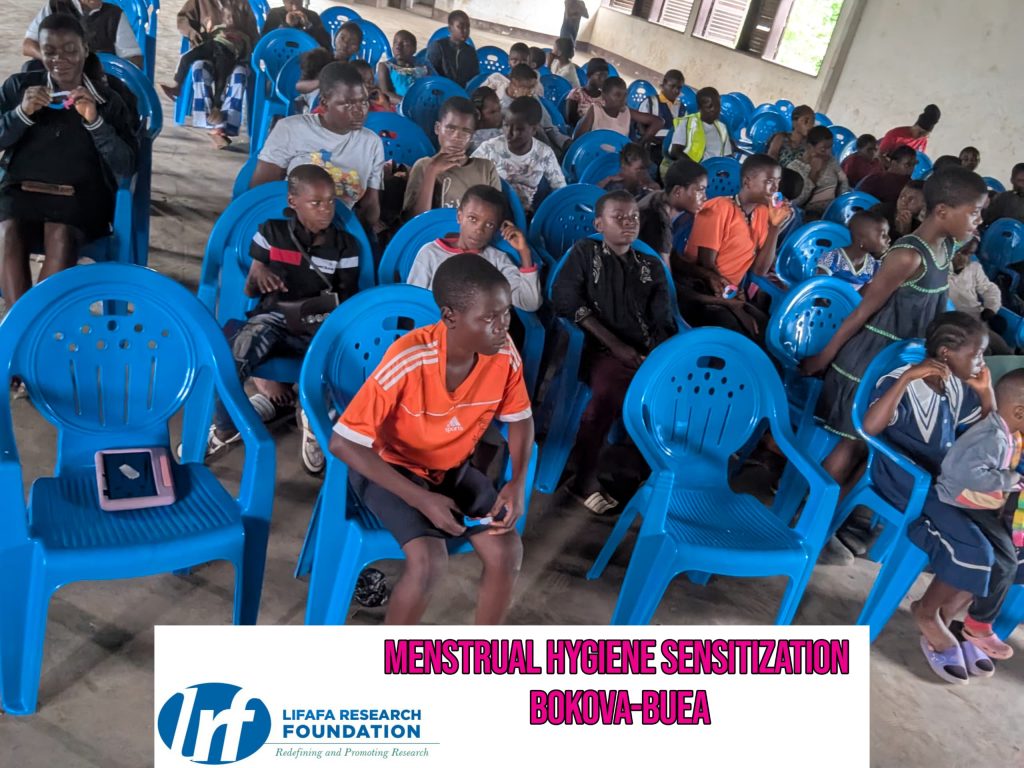
Part B: Women and the Girl Child Empowerment – Sustainability Through Reusable Pads
- Introducing Reusable Pads
An energetic facilitator introduced the participants to the world of reusable pads. She explained:
That reusable pads are washable and can be used multiple times
How this option is cost-effective, environmentally friendly, and sustainable
She taught the girls how to clean and care for these pads:
Wash with clean water (without detergents)
Sun-dry in an open environment
Wash hands before and after use to avoid contamination
This part of the training highlighted the importance of sustainability and gave the girls an affordable alternative to manage their menstruation with dignity.

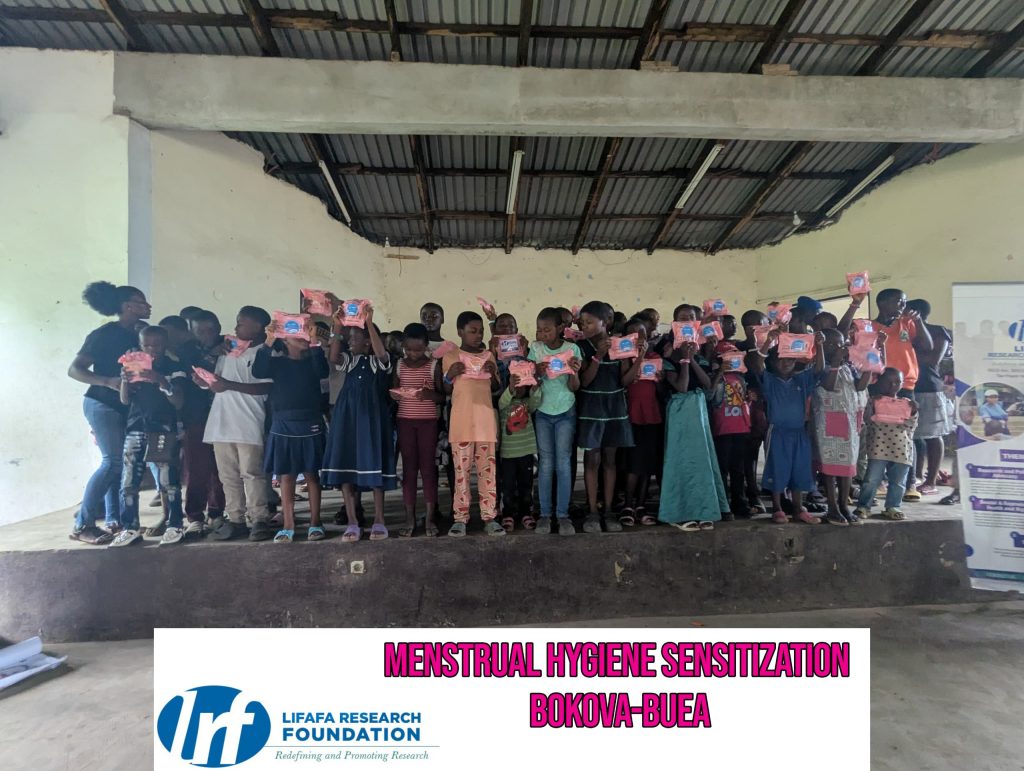
- Debating Gender Roles: Should Boys Help Girls During Menstruation?
To wrap up the empowerment session, a lively debate was organized on the topic: “Should boys help girls during menstruation?”
Two groups were formed:
Pro group argued that:
Boys may be the only ones around to help in emergencies
Boys can support their sisters and friends in school
Against group argued that:
Menstruation is private
Boys might misuse the situation or mock the girls
This debate not only sharpened the critical thinking skills of the participants but also created space to reflect on gender inclusivity, responsibility, and empathy.


A Joyful Ending: Celebration and Reflection
As the campaign came to a close, the girls, now full of new knowledge and enthusiasm, gathered for a final moment of celebration. There was singing, food, and picture-taking, all wrapped in a sense of fulfillment and sisterhood.
Everyone departed not just with bracelets and pads in their bags, but with courage, confidence, and a renewed sense of worth in their hearts.
Conclusion: Knowledge That Empowers
The Lifafa Research Foundation’s campaign in Bokova village was more than just an educational event. It was a movement of empowerment, a celebration of womanhood, and a call to break the silence around menstruation. The girls left feeling seen, heard, and equipped with knowledge that would not only serve them but their peers and future daughters.
One participant summed it up best: “Please come back again. We need to learn more. Every girl in the village should hear this.”
We hope to return soon because menstrual health is not just about hygiene, it’s about dignity, empowerment, and equity. And every girl deserves that.



